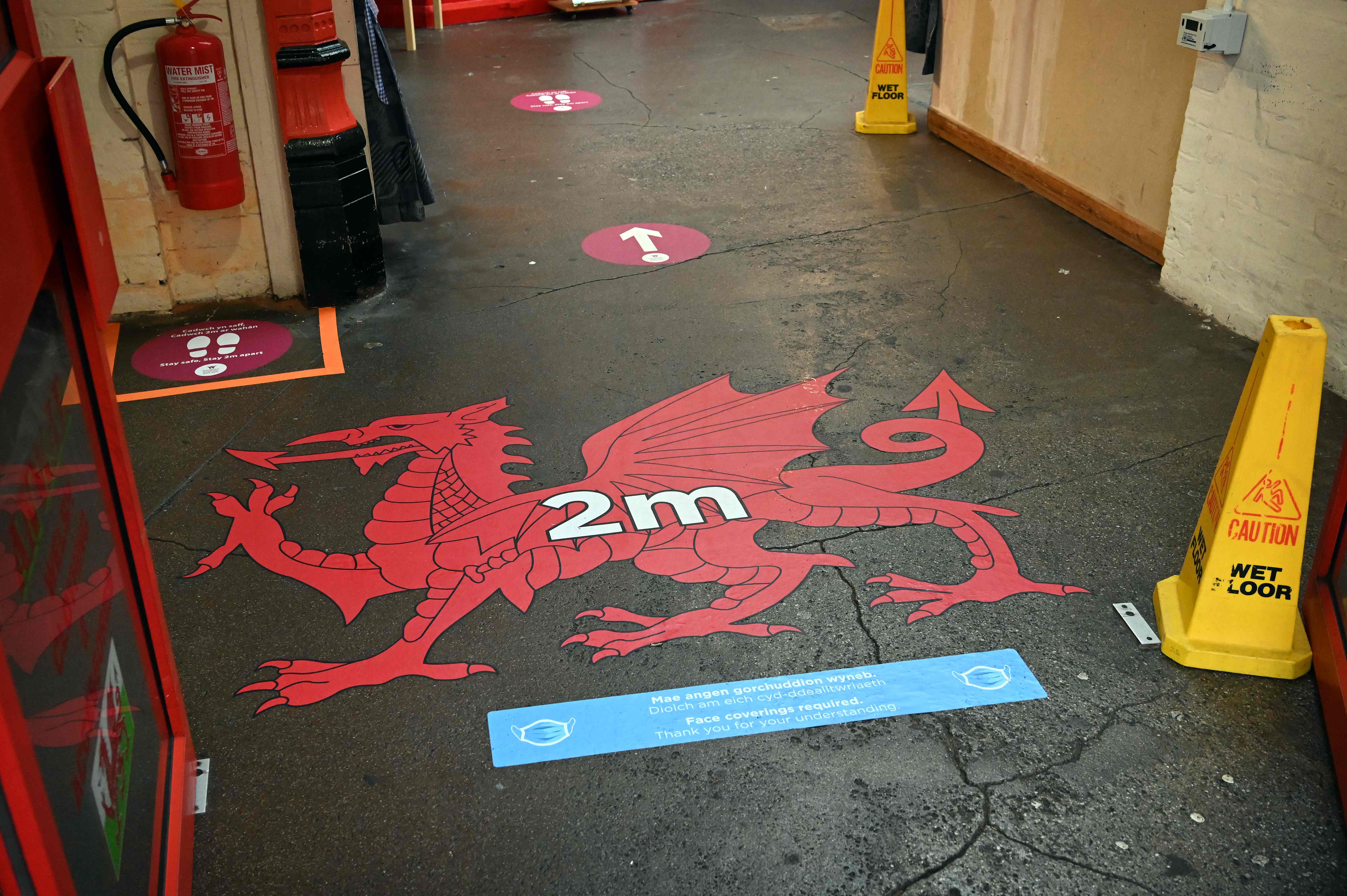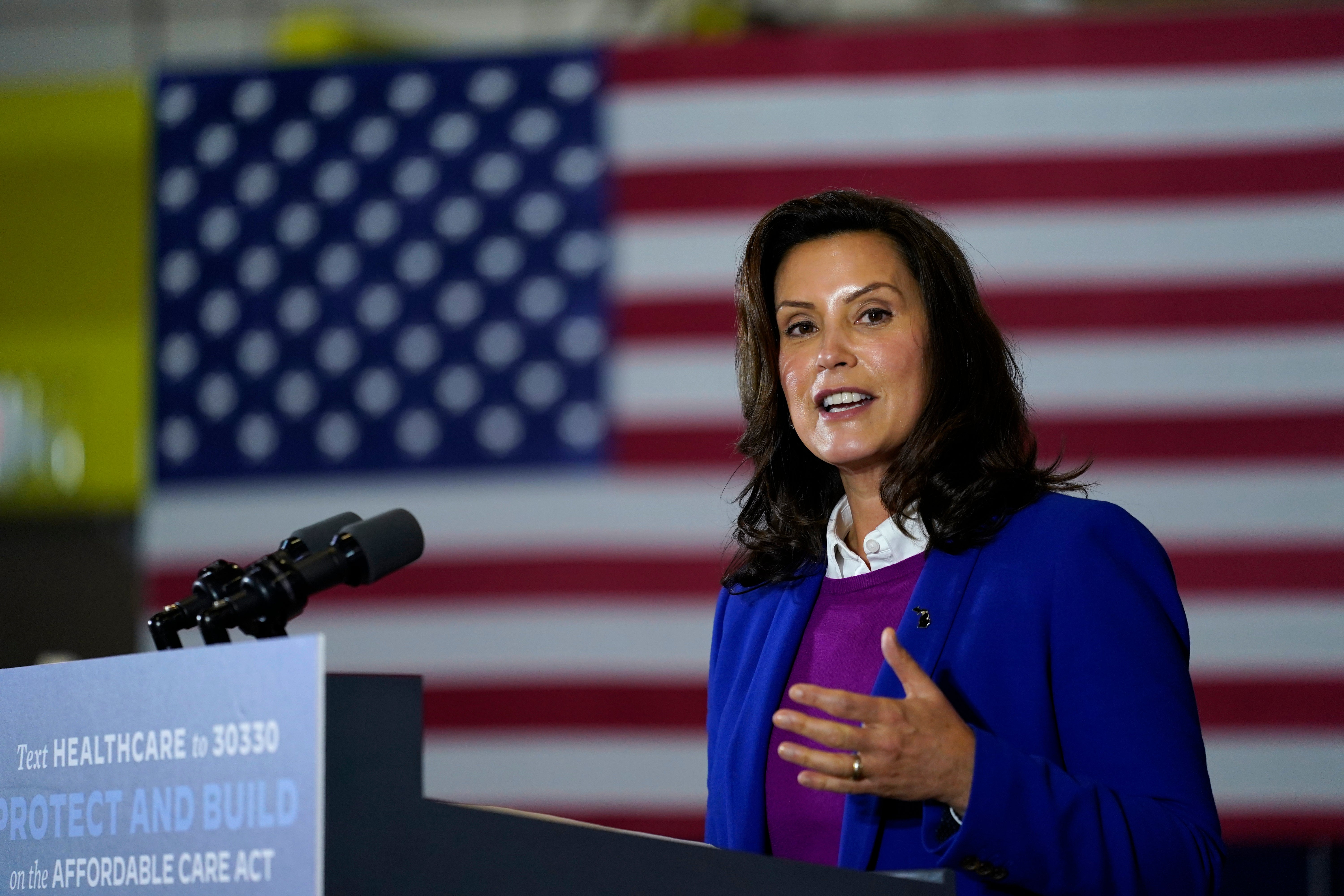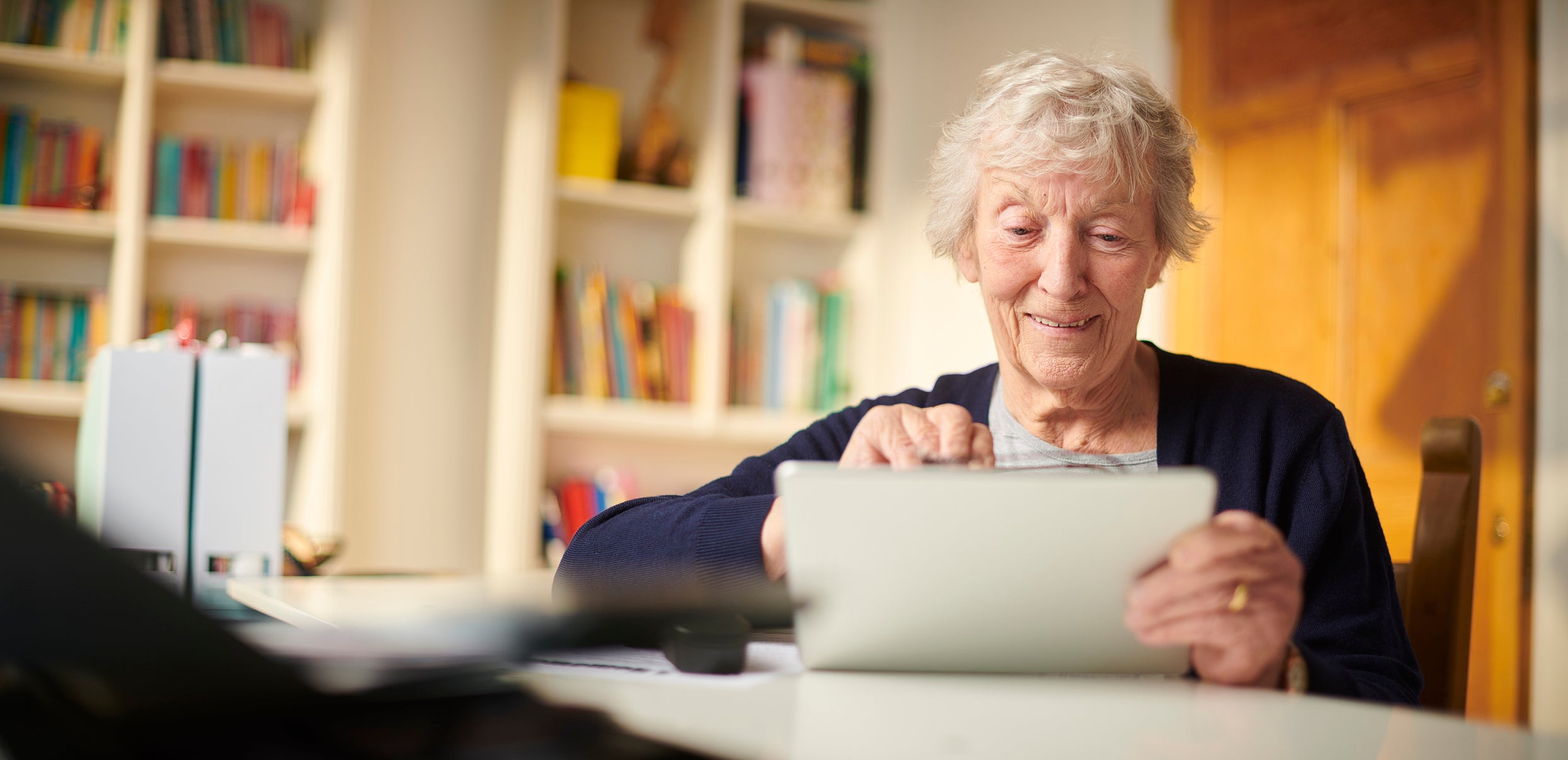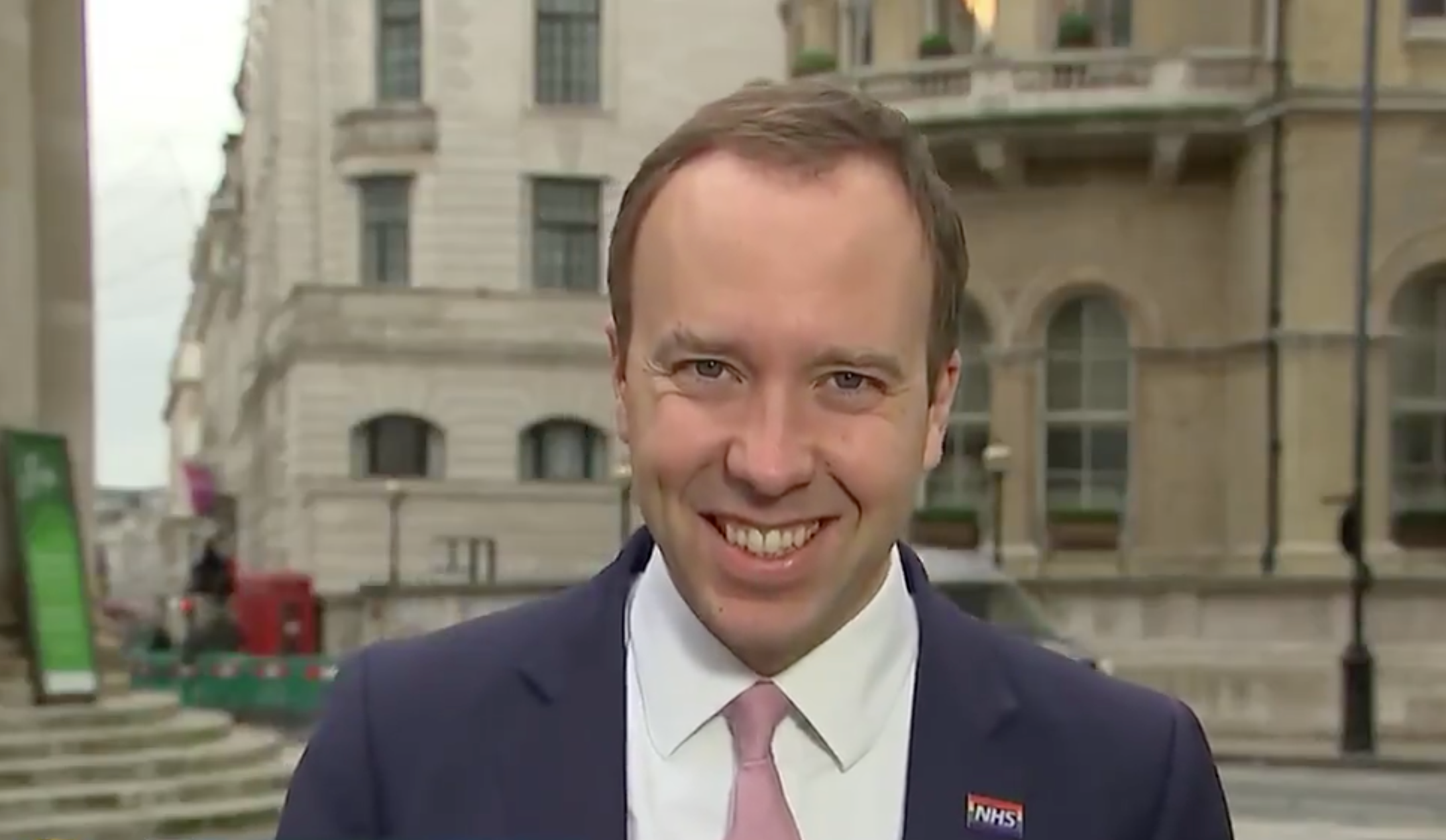Covid news - live: UK orders 5 million doses of Moderna vaccine as Hancock refuses to promise pay rise for NHS
Follow the the latest developments
Your support helps us to tell the story
From reproductive rights to climate change to Big Tech, The Independent is on the ground when the story is developing. Whether it's investigating the financials of Elon Musk's pro-Trump PAC or producing our latest documentary, 'The A Word', which shines a light on the American women fighting for reproductive rights, we know how important it is to parse out the facts from the messaging.
At such a critical moment in US history, we need reporters on the ground. Your donation allows us to keep sending journalists to speak to both sides of the story.
The Independent is trusted by Americans across the entire political spectrum. And unlike many other quality news outlets, we choose not to lock Americans out of our reporting and analysis with paywalls. We believe quality journalism should be available to everyone, paid for by those who can afford it.
Your support makes all the difference.The UK has bought 5 million doses of a coronavirus vaccine developed by the US-led biotech firm Moderna, hours after the company reported promising results in its ongoing trial.
The company’s coronavirus vaccine candidate has been shown to be more than 90 per cent effective in preventing disease among infected individuals.
Interim results from Moderna’s ongoing phase three study returned an efficacy rate of 94.5 per cent, which British scientists have hailed as “tremendously exciting” news.
Meanwhile, clinical trials of a new potential coronavirus vaccine developed by Janssen, part of Johnson &Johnson, are set to begin in the UK, with 6,000 volunteers from across the country taking part.
The Scottish Government could place Glasgow and parts of the west of Scotland under the toughest restrictions in an effort to lower the “stable but stubbornly high” prevalence of the virus.
First Minister Nicola Sturgeon said a “final decision” will be announced on Tuesday. If placed under the highest level of restrictions, these areas would have to close hospitality, non-essential shops and gyms, as well as a ban on all contact between households.
What do we know about the Moderna vaccine?
As yet another Covid vaccine is announced - this time closer than ever to being 100 per cent effective in stopping the spread of coronavirus - you may well be confused about what makes this one different to the last.
So, here’s everything you need to know about the Moderna vaccine - including what gaps there are in its data:
How was the trial run, and what are the early results?
More than 30,000 people in the US took part from a wide range of age groups and ethnic backgrounds. Two doses were given, 28 days apart, so researchers could evaluate safety and any reaction to the vaccine.
The analysis included 95 participants with confirmed cases of Covid-19, of which 90 had received the placebo and five the active vaccine.
Moderna also released data relating to severe cases, saying the interim analysis included 11 such patients. All 11 severe cases occurred in the placebo group and none in the group which had received the vaccine, known currently as mRNA-1273.
How does the vaccine work?
The Moderna jab is a messenger RNA (mRNA) vaccine. Conventional vaccines are produced using weakened forms of the virus, but mRNAs use only the virus's genetic code.
An mRNA vaccine is injected into the body, where it enters cells and tells them to create antigens. These antigens are recognised by the immune system and prepare it to fight coronavirus. No actual virus is needed to create an mRNA vaccine. This means the rate at which the vaccine can be produced is accelerated.
OK, but is the vaccine safe?
Moderna said its available safety data does not indicate any significant safety concerns. Their trials found the vaccine was generally safe and well tolerated, and the majority of adverse events were mild or moderate in severity.
Severe events after the first dose included injection-site pain and after the second dose included fatigue, myalgia (muscle pain), arthralgia (joint pain), headache, other pain, and redness at the injection site. But these were generally short-lived.
Does this mean everything will go back to normal?
No. The results are interim and the vaccine has not yet received regulatory approval. It is still not known how long immunity will last, and trial participants will need to be followed for some time before this can be determined.
And the data on how effective the vaccine is in older adults - those most vulnerable to Covid-19 - is limited. Experts say the vaccine will only be one tool in the fight against the pandemic, and public health measures like social distancing and hand-washing will have to continue for the time being.
Will people in the UK have access to the vaccine?
The Moderna vaccine is not one the UK has secured access to. However, the government has confirmed it is in discussions with the US company to “ensure UK access” but any doses would not be available until spring 2021 “at the earliest”.
Is the Moderna vaccine better than that Pfizer/BioNTech offering?
Both vaccines are based on the mRNA technology. The preliminary data suggests the Pfizer vaccine offers around 90 per cent protection against Covid-19, and Moderna's results suggest 94.5 per cent effectiveness. But both sets of researchers say their trials are ongoing and the final numbers could change.
One big difference between the two vaccine candidates is how they need to be stored. The Pfizer/BioNTech vaccine needs to kept at minus 70C, which could pose transport and storage issues. Moderna says its vaccine is expected to remain stable at standard refrigerator temperatures of 2C to 8C for 30 days, up from a previous estimate of seven days.
The company says mRNA-1273 can be distributed using widely available vaccine delivery and storage infrastructure and no dilution is required prior to vaccination.
Additional reporting by PA
Five Tory MPs, including Johnson, now self-isolating
At least five Conservative MPs, including Boris Johnson, and two Downing Street aides are now self-isolating for 14 days following a disputed meeting in No 10 last week.
Mr Johnson has been accused of failing to observe his own coronavirus guidelines, as questions were raised over whether it was really essential to hold the talks with backbench MPs face-to-face last Thursday.
The development came amid growing anger over Commons Leader Jacob Rees-Mogg’s refusal to return to the system of remote debating and voting used during the first lockdown.
Our political editor, Andrew Woodcock, has the full story:

Five Tory MPs, including Boris Johnson, now self-isolating after meeting at No 10
PM accused of breaching his own work-from-home guidelines
PM allowed to work from No 10 office during self-isolation
Boris Johnson will still be able to work from his No 10 office while self-isolating in his Downing Street flat, a spokesman for the PM told the PA news agency.
“The PM has been living in the flat above Downing Street full-time since we moved to the tougher national measures, so there is no change to that.
“In terms of where he is today, to enable the PM to carry out his full duties and with the agreement of medical advisers, he is working from his Downing Street office which he is able to access without any interaction with No 10 staff.”
The spokesman declined to comment on whether the prime minister’s fiancee Carrie Symonds was also staying in the flat.
The spokesman also said Mr Johnson was “well looked after and served by staff in No 10 at all times” and that anything staff do for him would be done in a “Covid-secure way”.

Covid cases falling in Wales, but do not expect ‘definitive statement’ on Christmas just yet
The Welsh Health Minister, Vaughan Gething, has said there are “early very positive signs” that cases of Covid-19 are continuing to fall in Wales following the country’s firebreak lockdown.

He told a press conference in Cardiff that the seven-day incidence rate for Wales now stands at around 160 cases per 100,000 people, a reduction of 70 from the same period the week before.
However, he warned that the Welsh public should not expect a “definitive statement” on Christmas in the next few days or weeks.
Mr Gething noted images he had seen of people who had “forgotten about social distancing and are returning to a more normal way of behaving”.
“If that continues, then we really will face difficult choices and we’re likely to see the trend that we’ve already seen with reducing cases, that could easily reverse,” he warned.
“This is a highly infectious virus that thrives on human contact. It’s also why we can’t have a definitive view at this point about what Christmas might look like.
“Whatever happens with Christmas and the festive season this year, it won’t be like normal.”
European MPs suggest four-day week could help solve economic crisis
Politicians from the UK, Germany and Spain have written to Prime Minister Boris Johnson to call for a four-day week to be implemented “now”, to help countries begin he process of combatting the economic crisis brought on by the pandemic.
The letter was sent by former shadow chancellor John McDonnell to German chancellor Angela Merkel, Spanish prime minister Pedro Sánchez and other leaders too.
It said that reducing working hours would improve mental health and presented an “opportunity” for leaders to rethink working patterns and reduce energy usage, reports my colleague Sam Hancock.

Four-day week could help solve Covid economic crisis, say European MPs
Move could also improve people’s mental health and climate crisis, group says
US records more than 11 million cases
The US surpassed a grim milestone in the Covid-19 pandemic, recording more than 11 million positive coronavirus infections.
Michigan and Washington became the latest US states to impose movement restrictions, and health officials have urged Americans to cancel or rethink Thanksgiving holiday plans.
Adam Forrest has the full story:

US records more than 11 million cases as Michigan and Washington State impose restrictions
Joe Biden’s election victory signals new seriousness in dealing with rising infections, as several states bring in curbs
Scottish government announces funding for tablets in care homes to support residents
Scottish First Minister Nicole Sturgeon has announced funding for tablets to be put in care homes to help connect residents to their families.

The devices would also allow care services, such as speech therapy, to take place remotely.
Ms Sturgeon said there will be “one or two” of the devices in each home. However, she said they would not be used as a substitute for face-to-face visitations.
“We know and understand how vital in-person visits are, both for residents and for their family members,” she said.
“For that reason we are currently finalising our plans to ensure that routine visits from designated visitors can take place as safely as possible.”
Hancock admits Government made ‘mistakes’ handling crisis in awkward GMB interview
In an excruciatingly awkward interview on Good Morning Britain, Matt Hancock conceded that “mistakes” were made over the government’s handling of the Covid-19 pandemic.
However, he rebuffed questions about whether he would resign and rejected the idea that capacity figures were “meaningless”.
His appearance on the programme marked the end of the 201-day Downing Street boycott of ministers appearing on the ITV programme, reports my colleague Adam Forrest.

Government made ‘mistakes’ on Covid, Matt Hancock admits during awkward GMB interview
Health secretary rebuffs questions on Dominic Cummings, ITV show boycott — and whether he would consider resigning
UK Government ‘in advanced discussions’ to get Moderna vaccine
A Whitehall source has said the Government was “in advanced discussions” to procure doses of the Moderna vaccine, reports the PA news agency.
No10 has agreed deals for six different vaccine candidates - with 380 millions doses ordered - but not Moderna’s.
Moderna vaccine trial results ‘very encouraging’, says expert
Professor Eleanor Riley, Professor of Immunology and Infectious Disease at the University of Edinburgh, said of the Moderna vaccine candidate: "This vaccine is very similar in design to the Pfizer/BioNtech vaccine that reported interim results last week. The results of this trial from Moderna are broadly similar to the Pfizer/BioNtech data, which is very encouraging.
“Each of these trials is still in the early phases of reporting and as more cases accrue the efficacy estimates may change slightly, but the fact that two independent trials are giving very similar results is very reassuring.
“Although the numbers are small, this trial also gives an indication that vaccination is effective in older and BAME individuals and prevents severe disease, all of which are key to allowing the world to start opening up again.
“The absolute prerequisite for a COVID-19 vaccine is that is stops people becoming ill enough to require hospital treatment and stops people dying. The preliminary data reported here suggest that this vaccine – and by extension, the Pfizer/BioNtech vaccine – will achieve this goal.
“The safety data also look promising. The side effects of vaccination appear to be in line with those typically seen for other adult vaccinations, including the seasonal influenza vaccination which is administered in many millions of doses every year.
“One important unknown is whether this vaccine, or any of the vaccines currently in trials, prevents disease transmission. It is likely that vaccines that prevent symptomatic disease will reduce the duration and level of infectiousness, and thus reduce transmission, but we don’t yet know if this effect will be large enough to make any meaningful difference to the spread of the virus within communities.
“But, overall, this is excellent news. Having more than one source of an effective vaccine will increase the global supply and, with luck, help us all to get back to something like normal sometime in 2021.”

Join our commenting forum
Join thought-provoking conversations, follow other Independent readers and see their replies
Comments